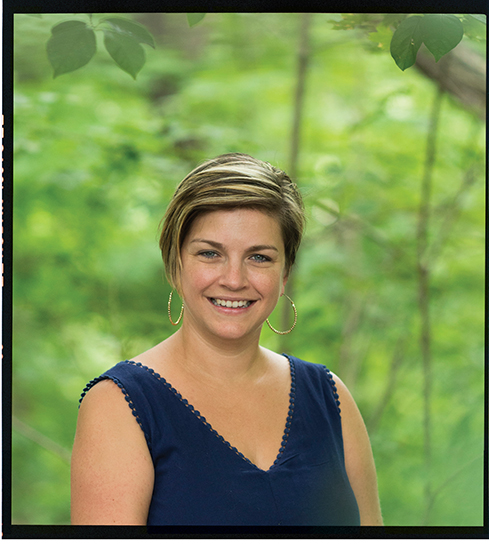 Fall 2016
Fall 2016
Laura Micco
Growing up, Laura Micco never played inside—not when there were acres and acres of woods surrounding her family’s house in rural Ohio. That’s how she first became connected to the natural world. Later, educational travel opportunities to Australia, Europe, and Key West (a dolphin camp!) helped her to see the world as bigger than herself and her little town. For the last eight years, she’s helped children make their own discoveries about nature and ecology as an educator at the Environmental Charter School (ECS) adjacent to Pittsburgh’s Frick Park, where she’s taught environmental science at every grade level, kindergarten through eighth grade. Today, Micco supports ECS teachers as an instructional coach, a role that earned the extrovert a 2016 Carnegie Science Award. Among her accomplishments: working with teachers to develop project-based, integrated science, technology, engineering, arts, and math (STEAM) lessons, and a “Get Outside” campaign that inspired her peers to log more than 1,500 outdoor experiences with students in a single school year. Micco credits the Science Center with being an innovative and supportive partner for her and her fellow ECS middle-school educators who teach the range of the sciences, from biology to physics. “That ability to reach out to Science Center educators when we’re not sure of a detail and get an answer right away has been huge for us,” she says. Those same Science Center educators even attend the school’s planning days to provide teachers with more in-depth knowledge about topics they’ll be teaching in the upcoming quarter. “As an instructional coach you always want to have a lot of things in your back pocket resource-wise to help your teachers succeed and grow,” says Micco. “The Science Center has octopus arms in the community, meaning it has an arm in everything science-related in Pittsburgh. Having a relationship with the Science Center allows us access to an amazing network.” What were the experiences outdoors that shaped you?There was a network of streams and creeks that ran through the woods near our house. We would spend all of our time following the creeks and seeing where they went. We would catch minnows and frogs. It was like our own little world. We named everything, too. There was an old 1800s dump that we called China Hill—because if you would just scratch the surface, you’d find old pieces of china and old glass. I still have a bowl from China Hill in my kitchen. What is your educational philosophy?First, science should be fun. I know that’s very simple, but that’s how you get kids into something. Second, science should be authentic. It has to relate to a person’s life in some shape or form. Students should be investigating, questioning, solving problems, having discussions with each other. That’s what science is all about. It’s not about having someone lecture you on a particular topic. How do those beliefs translate into the classroom?We did an activity in the sixth grade science classroom this year on the water cycle. The students started right off the bat by drawing what they thought the water cycle was and how they thought it worked. Then we looked at the initial drawings and asked why they thought what they did. That experience led to realizing what we need to spend a couple of days learning about, for instance, evaporation. Then the kids would add the new information to their initial model; so the kids start with something that came from them. What they ended up with is a completed water cycle map. To get there, they’d grappled with all sorts of interesting topics they thought they knew about, but then they had experiences along the way that changed their thinking. … and outside the classroom?I teach a birding class at ECS. Not everyone has to be into birds, but everyone has had an experience with a bird—sometimes positive, sometimes negative. That’s how you relate it to real life. I have an ornithologist who teaches with me one day a week. So the kids can see this isn’t just something that Miss Micco is excited about. It’s something that could actually become a career. It’s actually a very serious kind of science. Authenticity is absolutely necessary. Teaching has to be linked to where the kids are. Otherwise, you’re not going to get them. Or they’re going to get it, but it’s not going to be very meaningful for them. What do you work on with teachers in your role as instructional coach?A huge part of ECS is writing your own curriculum. That’s what people really needed help with. We use a technique called “understanding by design.” That’s where you start at the end. You have to think about what you want your students to walk away understanding. It’s like working backward. I think it’s the best way to make curriculum, because the entire time you’re designing what you’re going to do you have the end in mind. As a new mom, how will you introduce the environment to your daughter?Get her outside. That’s how you have to do it. You can’t build passion any other way. Just get her outside, that’s it. The rest of it will come.
|
Organizing Delirium · My Perfect, Imperfect Body · Body Boundaries · A Woman's World · LIGHTIME · President's Note · NewsWorthy · Artistic License: Making Some Noise · Travel Log · The Big Picture
 |
Copyright © 2017 CARNEGIE Magazine. All rights reserved. |

